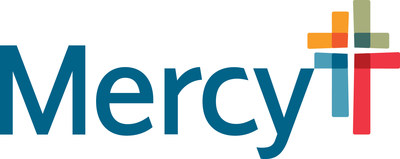Mercy Empowers Nurses With the Tools, Trust and Time Needed to Maximize Patient Care
Nurse-led innovation creates better work experience, enhances care
ST. LOUIS, May 29, 2025 /PRNewswire/ -- In hospitals across the country, nurses are often asked to do more with less. At Mercy, leaders are asking a different question: How can we make the experience of being a nurse better?
"We're creating an environment where Mercy nurses feel seen, supported and empowered," said Mercy's Tracy Breece.This is not a new concern, but it has become an important one in the past three years as nursing recruitment and retention have dropped across the country. Mercy's goal is clear: to empower nurses by removing obstacles that keep them away from where they want to be, the patient's bedside. From voice-to-text transcription tools that improve documentation speed to Bluetooth stethoscopes that help nurses who are hard of hearing, Mercy's approach is inclusive and accessible.
"We're creating an environment where Mercy nurses feel seen, supported and empowered," said Tracy Breece, Mercy's executive director of nursing informatics. "One nurse who left Mercy recently chose to return. When she did, she said, 'I was looking for the technology in my new environment that helps me do my job better – I knew it was at Mercy.' Together, we've built a national reputation, and credit belongs to the nurses who shaped it."
In recent years, Mercy nurses have implemented innovations that are already transforming how Mercy nurses spend their time. Leaders like Breece routinely travel to Mercy hospitals across the Midwest to observe the processes and technologies nurses are using and to listen to feedback from nurses to guide future developments. One of the top takeaways was that Mercy nurses want to spend less time navigating technology and more time where it matters most – with patients.
Some of the biggest burdens in daily practice were duplicated documentation tasks and nonessential alerts. By shadowing and working alongside frontline nurses, Mercy discovered that unnecessary tech steps, like redundant call lights, were costing nurses thousands of hours. Within the first year, Mercy eliminated 250 million redundant button clicks and gave nurses back an average of 32 minutes per shift.
"Most people have had a friend or family member in the hospital and have experienced constant flashing lights and beeps," said Stephanie Clements, Mercy's chief nurse executive. "Studies have shown caregivers experience fatigue from call lights. What we've done at Mercy is reduce that fatigue by prioritizing call lights, which in turn has helped alleviate some of the mental load on nurses."
Mercy has also utilized an AI tool designed with and for nurses to streamline the admission process from the emergency department to a hospital bed. In a recent survey of 450 nurses, 80% reported the information they received through the AI tool during the handoff process was more complete and easier to follow. For patients, this means fewer delays in getting to their room. For nurses, it means more time for connection, communication and compassionate care.
"It's universal among nurses that what we love and want to do is care for people," said Angela Novak, Mercy's director of nursing excellence. "When you have tools that actually help you do that, it makes a difference – not just in how you feel at work, but in how your patients feel too."
"True innovation happens when nurses are heard and empowered," said Breece. "That's when transformation takes root ‒ for caregivers and patients alike."
Mercy, one of the 15 largest U.S. health systems and named the top large system in the U.S. for excellent patient experience by NRC Health, serves millions annually with nationally recognized care and one of the nation's largest and highest performing Accountable Care Organizations in quality and cost. Mercy is a highly integrated, multi-state health care system including 50 acute care and specialty (heart, children's, orthopedic and rehab) hospitals, convenient and urgent care locations, imaging centers and pharmacies. Mercy has over 1,000 physician practice locations and outpatient facilities, more than 5,000 physicians and advanced practitioners and more than 50,000 co-workers serving patients and families across Arkansas, Illinois, Kansas, Missouri and Oklahoma. Mercy also has clinics, outpatient services and outreach ministries in Arkansas, Louisiana, Mississippi and Texas. In fiscal year 2023 alone, Mercy provided more than half a billion dollars of free care and other community benefits, including traditional charity care and unreimbursed Medicaid.
![]() View original content to download multimedia:https://www.prnewswire.com/news-releases/mercy-empowers-nurses-with-the-tools-trust-and-time-needed-to-maximize-patient-care-302468604.html
View original content to download multimedia:https://www.prnewswire.com/news-releases/mercy-empowers-nurses-with-the-tools-trust-and-time-needed-to-maximize-patient-care-302468604.html
SOURCE Mercy


